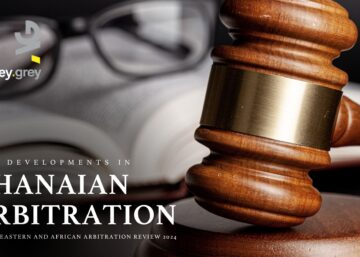I know. I know. I know during the last publication I said the previous publication was the last in a series of articles looking at the types of directors. But look at what we have here: the fourth instalment. So brace yourselves for it.
By way of a quick recap, we have seen the managing director, the executive director, the non-executive director, the shadow director, the substitute director, and the alternate director. In the managing director’s case, we said she is a director appointed by her colleague directors and given a specific role to perform. The law does not limit what she can do and not do. Her terms of reference are prescribed by her colleague directors. In the case of the executive and non-executive director, we showed that an executive director was knee-deep in the business’s running. The executive director held some other position of profit in the company besides being a director. In the case of the substitute director, we stressed that even though she is a permanent fixture in the company; she comes in to fill in the role of an absentee director. We can say the same for the alternate director even though her role is for a 6-month period. Then we considered the case of the shadow director: the director nobody sees but who is lurking in the shadows and on whose advice the members of the board of directors are used to taking.
It is time for us to consider the position of persons who, though they are not formally appointed as directors, are held out by the company as directors. The law recognises these persons as directors. Section 170(2)(a) says that “a person not being a duly appointed director of a company, who holds out as a director or knowingly allows to be held out as a director of that company is subject to the same duties and liabilities as if that person was a person duly appointed director of the company.” There are sound policy reasons for this provision. The main policy rationale is that a company has an obligation to ensure that persons who represent it in public have the correct authority and power to do so. And the opposite is true as well: Persons dealing with a company should not be burdened with the responsibility of having to double-check the capacity of the persons they are dealing with when the company holds the person out as a director.
With persons either held out or who allow themselves to be held out as directors, they are not only fixed with the liability of the director. The Companies Act also imposes a fine of 250 penalty units on such person.
The Ghanaian court of appeal decision in Commodore v Fruit Supply (Ghana) Ltd [1977] 1 GLR 241 is instructive on this point. At the heart was a man by name Attoh Quarshie. He was not a duly appointed director. But he was very influential in the running of the Fruit Supply company. He was, for instance, influential in helping the company gain an import licence. The company allowed Mr Attoh Quarshie to share in its profit. His name appeared on the company’s letterhead as a director. Mr Attoh Quarshie committed the company into a deal that went bad. A suit followed. The company then denied Mr Attoh Quarshie. The company said that Mr Attoh Quarshie was on his own and since he was not a duly appointed director; he did not have the power to bind the company in any transaction.
The court held that even though Mr Attoh Quarshie was not appointed as a director of a company; he was a matter of law held out by the company as a director with authority to transact business with the appellant. The court said that the company was therefore estopped from denying that Mr Attoh Quarshie was a director.
The court further stressed that a person who entered into a contract with a company and dealt with the company in good faith had the right to assume that the acts within the constitution and powers of that company had been duly and properly performed. The court also noted that an outsider had no obligation to look into the internal affairs of the company to ascertain whether acts of management had been regularly performed.



